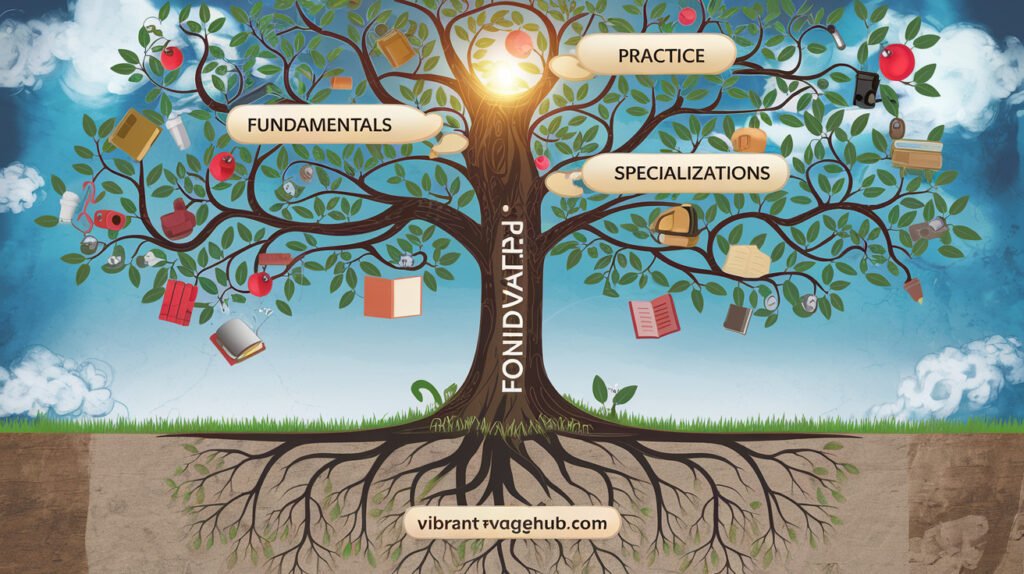Turn Your Hobby Into Cash: 7 Creative Ways to Monetize Your Skills
Have you ever thought about turning your favorite hobby into a source of income? In today’s digital world, it’s easier than ever to make money from your skills and hobbies. Whether you’re skilled in writing, graphic design, crafting, or tutoring, the internet has opened up endless opportunities for you to earn money on your terms.
You can start by utilizing your free time to generate extra income through a side hustle. Many individuals have successfully monetized their passions, creating a reliable source of income without being tied to a traditional 9-to-5 job. With the right business strategy, you can make money doing what you love.
Key Takeaways
- Discover how to monetize your hobbies and skills.
- Learn about the various ways to earn money online.
- Understand the importance of turning your passion into a business.
- Explore the concept of a side hustle and its benefits.
- Find out how to utilize your free time to generate extra income.
The Rise of Hobby-Based Income in the Digital Age
The digital revolution has transformed hobbies into lucrative business ventures. Many successful businesses start as hobbies, whether it’s photography, baking, or fitness. The digital age loves a touch of personal craftsmanship.
With platforms like YouTube, Instagram, and personal blogs, you can monetize almost anything—from makeup tutorials to travel adventures. Consistency in content delivery and engaging with your audience can make all the difference.
Why More People Are Monetizing Their Passions
The growth of side hustle culture is a significant factor in the rise of hobby-based income. Many people look for short-term gigs or flexible jobs that don’t require much investment to get started. According to a recent survey, over 40% of Americans have a side hustle, driven by the need for additional income streams.
Social media platforms have become powerful tools for showcasing skills and connecting with potential customers or clients. For instance, Instagram has enabled many hobbyists to turn their passions into businesses through its visual-centric platform.
The Benefits of Turning Hobbies Into Income Streams
Monetizing your hobby can have numerous benefits, including increased job satisfaction, better work-life integration, and reduced burnout compared to traditional employment. As Entrepreneur Magazine notes, “Turning your hobby into a business can be a game-changer.”
A comparative analysis of traditional employment vs. hobby-based income reveals several key advantages:
| Aspect | Traditional Employment | Hobby-Based Income |
|---|---|---|
| Job Satisfaction | Often limited by job roles | High, as it’s based on personal passion |
| Work-Life Balance | Can be rigid | Flexible, allowing for better balance |
| Financial Potential | Limited by salary scales | Unlimited, based on effort and market demand |
As the table illustrates, hobby-based income offers several benefits over traditional employment. By leveraging your hobbies, you can create a more fulfilling and potentially lucrative career.
As the digital landscape continues to evolve, it’s likely that more people will turn their hobbies into income streams. By understanding the opportunities and challenges, you can successfully monetize your passions.
Assessing Your Skills and Market Potential
Evaluating your skills and the demand for them is the first step to creating a successful hobby-based business. To turn your hobby into a profitable venture, you need to understand your strengths and the market potential.

Identifying Your Monetizable Skills
To monetize your hobby, you need to identify the skills you’ve mastered within it. For instance, if you enjoy photography, understanding lighting, composition, and editing can make a significant difference. Take stock of your abilities and consider how they can be applied to create products or services that people might be willing to pay for.
You can start by making a list of your skills and rating them based on your proficiency level. This will help you identify areas where you excel and can potentially generate income. For example, if you’re skilled at writing or design, you might consider offering your services on freelance platforms or creating and selling online courses teaching your skills.
Researching Market Demand
Conducting market research is crucial to understanding whether there’s adequate demand for your products or services. You can use tools like Google Trends, social media listening tools, and competitor analysis to gauge interest and identify trends. This research will give you a clearer picture of your potential customer base and help you tailor your offerings to meet their needs.
For more ideas on how to research market demand, you can explore resources like beginner-friendly side hustle ideas to get started.
Evaluating Competition in Your Niche
Understanding the competitive landscape is vital to determining your niche‘s viability. Analyze your competitors, identify gaps in the market, and consider how you can differentiate your products or services. By doing so, you’ll be able to position your hobby-based business effectively and attract your target audience.
By carefully assessing your skills, researching market demand, and evaluating the competition, you can make informed decisions about your hobby-based business and increase its chances of success.
Building a Strong Foundation Before Monetization
Establishing a strong base is essential for successfully turning your hobby into a business. Before you can start making money from your skills, you need to ensure that you have the necessary expertise and a well-crafted brand that resonates with your target audience.
A well-crafted brand is more than just a catchy name and logo; it embodies your values, vision, and the unique aspects that set your hobby business apart. With the right branding, your customers won’t just buy your service or product—they’ll connect with your story and your passion, becoming loyal supporters.
Developing Expertise in Your Chosen Area
To monetize your hobby, you must continually develop your skills to elevate your work from amateur to professional quality. This can be achieved through courses, mentorships, and consistent practice. By doing so, you not only enhance your expertise but also stay updated with the latest trends and technologies in your field.

Creating a Portfolio or Samples
Creating an impressive portfolio is crucial for showcasing your best work and demonstrating your capabilities to potential clients or customers. Your portfolio should highlight your skills and the quality of your work, making it easier for customers to understand the value you can provide.
- Include a variety of samples that demonstrate your range.
- Ensure that your portfolio is easily accessible, either online or in-person.
- Regularly update your portfolio to reflect your growing expertise.
Setting Realistic Financial Goals
Setting realistic financial goals is vital for the successful monetization of your hobby. This involves understanding your market, determining appropriate pricing for your products or services, and creating a tiered approach to your monetization goals. By doing so, you can ensure a sustainable income that reflects your work and dedication.
By focusing on these key areas, you can build a strong foundation that not only enhances your credibility but also sets you up for long-term success in turning your hobby into a profitable business.
Freelancing Your Skills on Digital Platforms
Digital platforms offer a vast marketplace where you can sell your skills and turn your passion into profit.

Freelancing on platforms like Fiverr and Upwork is a quick way to earn cash by offering services such as writing, graphic design, or video editing. Businesses and individuals constantly seek skilled professionals, and setting up a profile can help you start earning right away.
To succeed, you need to create a standout freelancer profile that showcases your skills and attracts high-quality clients. This includes having a professional profile picture, a compelling bio, and a portfolio that highlights your best work.
Building a strong reputation through reviews and ratings is crucial. As you complete projects, ensure that you deliver high-quality work and ask clients for feedback to improve your ratings.
Popular freelancing platforms cater to different skill sets. For instance, Upwork is ideal for a wide range of services, while Toptal is geared towards high-end professionals in fields like software development and finance.
To maximize your earnings, identify and target the most profitable project types within your skill domain. This involves understanding market demand and positioning yourself accordingly.
Transitioning from one-off projects to ongoing client relationships can provide a more stable income. This can be achieved by delivering exceptional work and maintaining good client communication.
Freelancing can serve as either a supplementary income stream or a pathway to full-time self-employment. It’s essential to manage client expectations, deliver high-quality work, and handle the business aspects of freelancing.
By following these strategies, you can effectively monetize your hobby-based skills on digital platforms and achieve your financial goals.
FAQ
What are the most profitable skills to monetize on social media platforms?
How do I determine the market demand for my hobby-based business?
Can I monetize my hobby without having extensive experience or expertise?
What are some effective ways to promote my hobby-based business on a limited budget?
How can I balance my hobby-based income stream with my full-time job or other responsibilities?
What are some popular platforms for selling products or services related to my hobby?
How do I protect my intellectual property when monetizing my hobby?
editor's pick
latest video
news via inbox
Nulla turp dis cursus. Integer liberos euismod pretium faucibua




